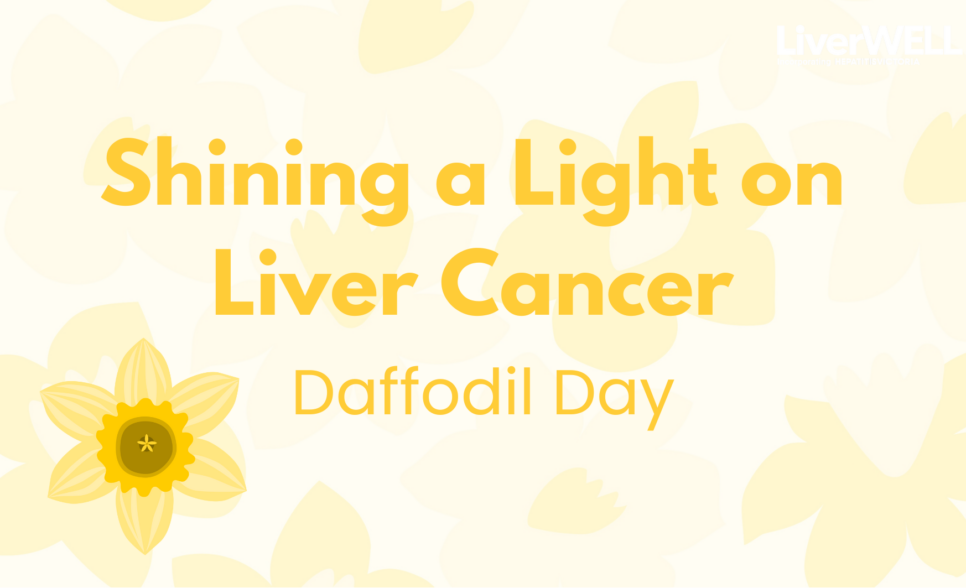To the Cancer Council, and those affected by cancer, the daffodil represents hope for a cancer-free future. Daffodil Day has funded lifesaving breakthroughs in cancer research over the years, and this research wouldn’t be possible without the support of thousands of Australians donating and actively supporting the cause.
This Daffodil Day, LiverWELL is shining a light on liver cancer and its relationship with undiagnosed or late-diagnosed hepatitis b, with the hope that more Victorians will get tested and treated for hepatitis b to lessen their chances of a future liver cancer diagnosis.
Liver cancer is the sixth most common cause of cancer-related death in Victoria, with 427 Victorians losing their life as a result of the disease in 2021.
Last July, Cancer Council Victoria urged the Victorian community and clinicians to push for more testing after new data from the Peter Doherty Institute for Infection and Immunity (Doherty Institute) revealed a staggering 20,700 Victorians may unknowingly be living with hepatitis B, increasing their risk of liver cancer. It was also reported that the number of hepatitis serology screenings had decreased by over 18% between 2020 and 2022.
Hepatitis B and hepatitis C account for most cases of liver cancer in Australia, though most people living with hepatitis B remain untested and unaware, or are diagnosed too late, even after being diagnosed with liver cancer.
The Royal Melbourne Hospital’s Professor Benjamin Cowie, Director of the WHO Collaborating Centre for Viral Hepatitis at the Doherty Institute, said in this article with early detection and regular monitoring, Victorians living with hepatitis B could prevent progression to liver cancer.
Many people incorrectly presume alcohol consumption is the only cause of liver cancer. In fact, most people acquire hepatitis B at birth or in early childhood.
Hepatitis B is blood-borne virus. That means it’s transmitted through blood (including menstrual blood) and sexual fluids such as semen and vaginal fluid.
There are three ways hepatitis B can be transmitted:
- Direct blood-to-blood contact: blood of a person with hepatitis B enters the bloodstream of another person.
- Unprotected sexual contact (semen and vaginal fluids)
- Mothers living with hepatitis B can pass it on to their babies during childbirth.
The hepatitis B virus cannot penetrate unbroken skin and is killed by the digestive juices in the stomach if it is swallowed.
Hepatitis B cannot be transmitted through casual contact such as touching, kissing, hugging, sharing food or if bodily fluids come into contact with intact skin.
Another risk factor for contracting hepatitis B is being born in hepatitis B endemic regions with limited or no access to vaccines, including parts of East and Southeast Asia, Pacific Island countries, parts of central Asia, the Middle East, the Amazon Basin and sub-Saharan Africa.
If you are concerned about your hepatitis B status, talk to your GP. Hepatitis B is diagnosed through a simple blood test and treatment options are available. LiverWELL also offers LiverLine, a free confidential and non-judgmental phone service that provides information, support and referrals to anyone experiencing liver health related concerns, including hepatitis. Call 1800 703 003, Monday to Friday from 9 am–5 pm.
By donating to Daffodil Day, you’re helping to create change for people affected by cancer. Last year The Cancer Council raised over $2.5m to support lifesaving cancer research, and they’re looking to make this year an even bigger success. For all that cancer takes, give all you can!
Donate now by clicking below!










